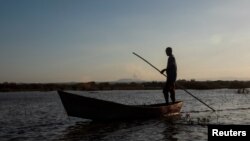A new report warns that wetlands are disappearing three times faster than the world’s forests, with serious consequences for all life on earth.
The Ramsar Convention on Wetlands is a global treaty ratified in 1971 by 170 countries to protect wetlands, which are ecosystems inundated by water, such as swamps, bogs and floodplains.
Unfortunately, the goal of this treaty is under threat. Ramsar Convention officials report about 35 percent of the world’s wetlands have been lost between 1970 and 2015.
State of crisis
Unless this situation is urgently reversed, Ramsar Convention Secretary-General Martha Roja Urrego warns the world will be in a state of crisis because wetlands are critical for all aspects of life.
“All the water that we use for consumption, irrigation and for hydro-electricity comes directly or indirectly from wetlands,” Urrego said. “Secondly, wetlands also have a main function in filtering waste and pollutants, so they act as the kidneys of the world. They filter the waste.”
Urrego says wetlands also are essential in regulating the global climate as peatlands store twice as much carbon as the world’s forests.
Several factors
The report finds wetland loss is driven mainly by such factors as climate change, population increase, changing consumption patterns and urbanization, particularly in coastal zones and river deltas.
Authors of the report say biodiversity also is in a state of crisis. They say more than 25 percent of all wetlands plants and animals are at risk of extinction.
Scientists say without biodiversity, there is no future for humanity, because the air people breathe, the water they drink and the food they eat ultimately rely on biodiversity in its many forms.
